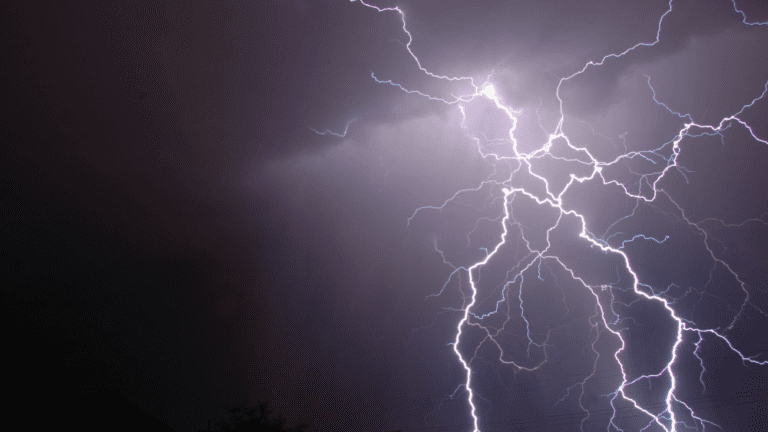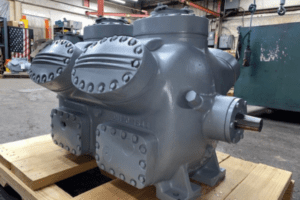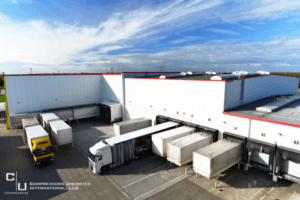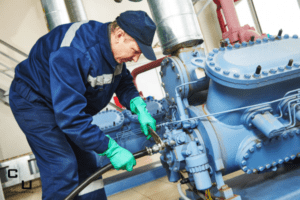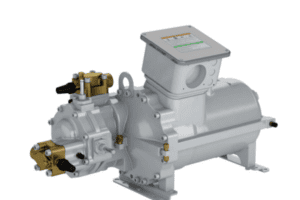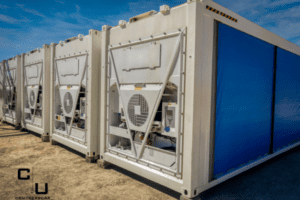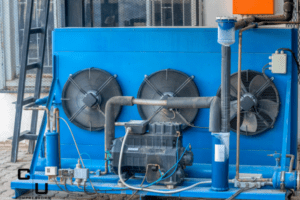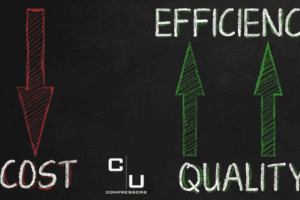Thunderstorms pose a risk to technological systems of all kinds. At the same time, a business that relies on a large commercial HVAC system can’t expect to drop everything if the summer is full of thunderstorms. So, what are the real facts about lightning and risk to your commercial compressor system?
Unlike a large commercial refrigeration system, you have some leeway in your HVAC system to build in safety features that temporarily reduce performance but keep your building safe. But before we discuss what to do about lightning, let’s consider what a lightning storm can really do to your compressor.
Will a Lightning Storm Destroy an HVAC Compressor?
A lightning bolt generates about three hundred million volts of electricity on average, compared to a household voltage of just 120. Temperatures can be up to 30,000 degrees Fahrenheit. About 90% of people survive being struck by lightning, but the consequences can be dire.
If the odds of an electronic or mechanical system surviving a lightning strike was anywhere near 90%, it would be a very different world. Unfortunately, just about any complex system hit by lightning will be devastated, at least in the area of the strike.
While it’s unlikely for a commercial HVAC compressor to sustain a direct hit from lightning, any external part of the system is a potential target. And any part can be damaged as a result of stress elsewhere in the system. When a building is struck by lightning, the HVAC system often goes down.
If your building is struck, there’s a good chance there will be damage somewhere in your HVAC system. And depending on the feedback loop it creates, it may damage your compressor, requiring replacement. Whenever a lightning storm is out, you’re at risk.
What Can You Do to Reduce Lightning Danger?
Lightning rods have been around in some form for hundreds of years: U.S. Founding Father Ben Franklin was one of their biggest proponents. A complete lightning protection system is a terrific investment for defending your investments from the unexpected.
In practice, commercial lightning protection systems don’t prevent lighting from striking a building. By providing a conducive path for lightning to follow, such as copper or aluminum cable, the system draws the electricity safely to the ground. In particular, this cuts down on the odds of a fire.
Wires, pipes, communication lines, and small electronic devices remain vulnerable to lighting even when a lightning rod is in place. To reduce the likelihood of damage as much as possible, it would be necessary to review every inch of the building’s outer envelope and all the infrastructure that supports it.
Needless to say, there are many organizations for which this isn’t practical.
Protecting Your HVAC System from Lightning
If a comprehensive lightning safety plan isn’t in the cards, you can still optimize your HVAC system to cut down on some of the worst storm dangers. When a major storm is passing overhead, consider using the thermostat or building management system to shut down the HVAC temporarily.
Needless to say, there will be pushback against any effort to restrict HVAC performance because of the weather. That’s why it’s essential to have a disaster readiness plan that specifies exactly when to take action – one that allows you to remain ahead of the situation until the storm completely passes.
Remember, if you can hear thunder or see lightning, it is close enough to strike. Thunder can be heard at a distance of about ten miles from any lightning strike. Lightning may also hit power lines or electrical transformers, potentially causing a voltage inbalance or power surge followed by a blackout.
In 2017, Paul M. Willard, Jr. – the co-owner of Boston Lightning Rod Company – said that the average insurance claim for a lightning strike was $7,400, with some in excess of $700,000. Indirect strikes that take advantage of incoming utility lines make up the biggest share of the danger.
Turning off the HVAC system is inconvenient, and it can result in a temporary uptick in power use when it comes back online. If you’re asked about the savings potential compared to the hassle, just be aware you never know whether you’ll be at the $7,000 or the $700,000 end of the scale!
What to Do After a Lightning Strike
Airplanes are often struck by lightning without anyone noticing, but the same is rarely true of large commercial buildings. A lightning strike generally disrupts power and leaves signs of damage. Look around the exterior of your building once it’s safe – then check on your compressor.
Lightning is a big reason it’s wise to have a replacement compressor on standby. A remanufactured commercial compressor puts world-class redundancy in reach. You can get a compressor of the same make and model of your existing unit at 10%, 20%, or even 30% off.

